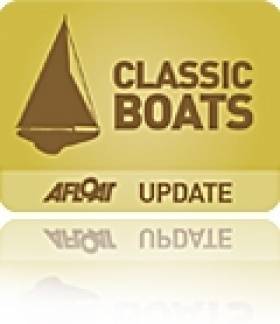Displaying items by tag: South Georgia Island
UK Based Tug Operator to Bring WWI Trawler ‘Viola’ Home from Remote South Atlantic Island
#BringViolaHome - SMS Towage Limited, the East Yorkshire based towage operator which entered the Belfast Harbour towage market last year, announced today that they are throwing their marine expertise behind an ambitious project.
For more than a decade Dr. Robb Robinson of Hull University has campaigned to bring the 'Viola' (launched 1906), a derelict and abandoned trawler from the remote South Georgia Island to its homeport of Hull, 100 years after she sailed to take up her part in World War I.
The former North Sea trawler, built in Beverley in 1906, was requisitioned in 1914 by the Admiralty and set sail on a mission to hunt U-boats and sweep for mines. Despite a successful campaign which saw her involved in the sinking of two U-boats she has yet to return to her home port of Hull.
"Some 3,000 fishing vessels were requisitioned and they fought that grim battle against U-boats and mines," said Dr Robinson.
"We hear very little about that, but had we lost that war then our ability to wage the whole First World War World have been compromised, because we would have been starved of supplies."
SMS Towage have put together a team of maritime engineers and salvage experts to travel to the remote British overseas territory to assess the vessels structural condition with a view to finally bringing her home.
The three-week project departed the UK on the 5th November making the 7,750 mile journey via the Ascension and Falkland Islands to her current resting place.
"It has been great to get involved with this special project," said Paul Escreet.
"I have been following Dr Robinson's efforts to bring Viola home for many years and am very proud to be able to contribute the time and expertise of SMS Towage to this cause. We can only hope that the conditions in South Georgia have aided in preserving the steelwork so that she can be lifted out of the water for the long journey home."
Further information on the history of Viola can be found by clicking PDF document HERE.





























































